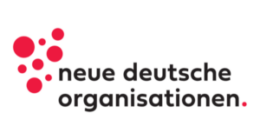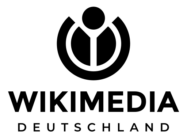Program team
The program team at Wikimedia Deutschland consists of five people – Riham, Anna (on parental leave), Jasmin, Cin, and Chris. Together, we work on the program and are supported by staff from Wikimedia Deutschland, such as the event team, the finance department, and the communications department. We are a predominantly white team in a white organization. we bring a range of different positionalities, lived experiences and privileges or experiences of discrimination to the table. We want to sharpen our awareness of structural discrimination and work against discrimination. Therefore, we have decided to engage as a team in a guided learning and reflection process on the topics of discrimination, marginalization, and racism. During this process, we will reflect on established practices and develop new approaches that will aid us in working with marginalized knowledge in a manner that interrogates discrimination. We are aware that this does not prevent us from making mistakes. In this learning and reflection process, Andrés Nader has accompanied and supported us until May 2024.
Our goal is to contribute to more equity in free knowledge. We want to contribute as a team to ensuring that marginalized knowledge finds its way into free knowledge despite barriers, and that people are supported and empowered in this endeavor. Therefore, with re•shape – A Wikimedia Program to Promote Knowledge Equity, we want to create a space that provides people and communities affected by racism with resources to engage with free knowledge and platforms of free knowledge.
Riham (she/her) and Jasmin (she/her): We are your contacts for the program and are responsible for the content design of re•shape – A Wikimedia Program to support Knowledge Equity. We are happy to answer questions about the application process and the program’s schedule. During the concept development, we worked closely with an advisory board. In collaboration with a jury, one of us will also be involved in the project selection. During the program period, we will work especially on the design of the non-material support and the planning and execution of events.
Cin (they/them or no pronouns) and Chris (he/him): We take care of everything related to budget and finances and are also involved in organizational tasks, material creation, and event planning and execution.
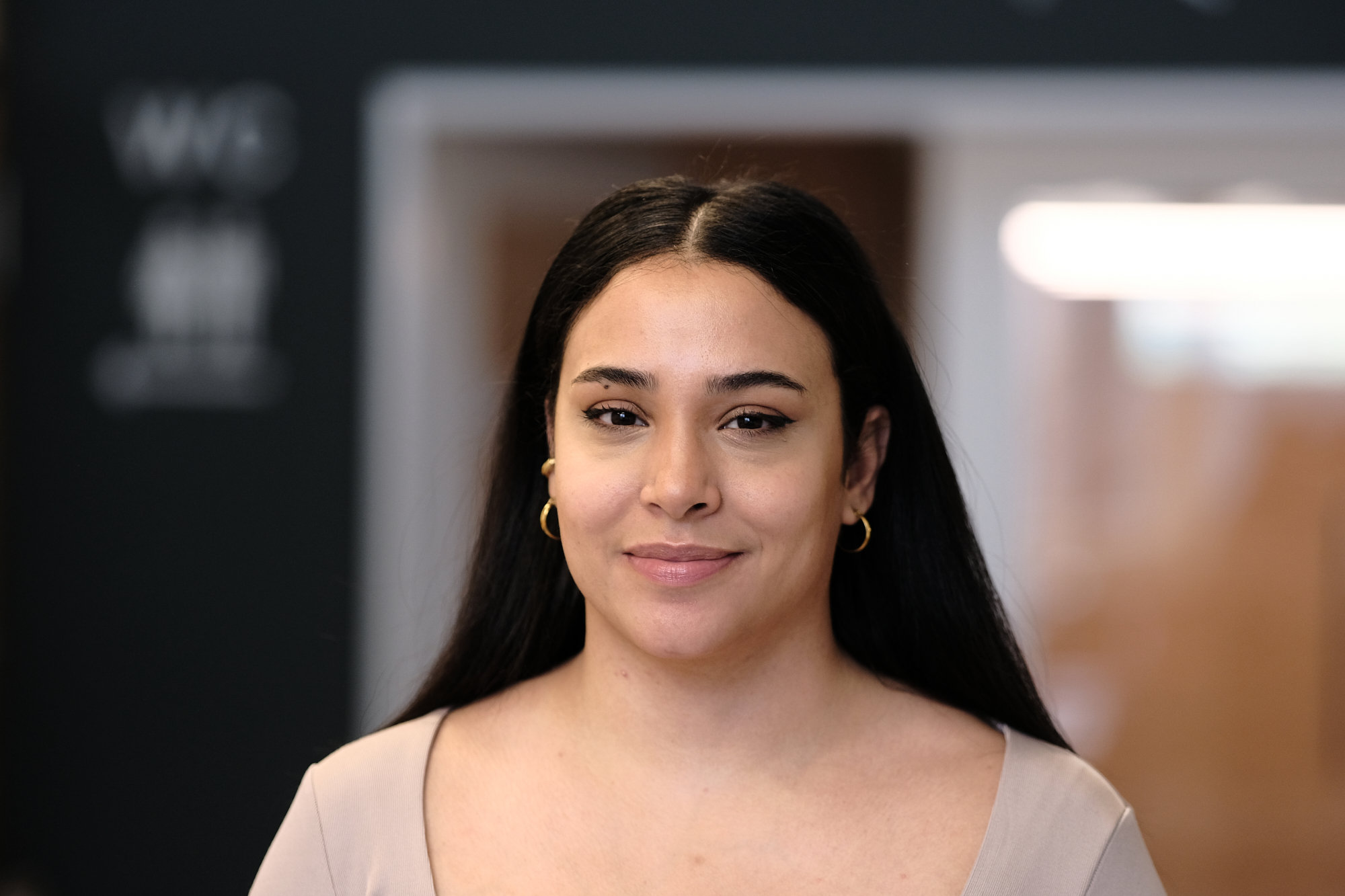
Riham
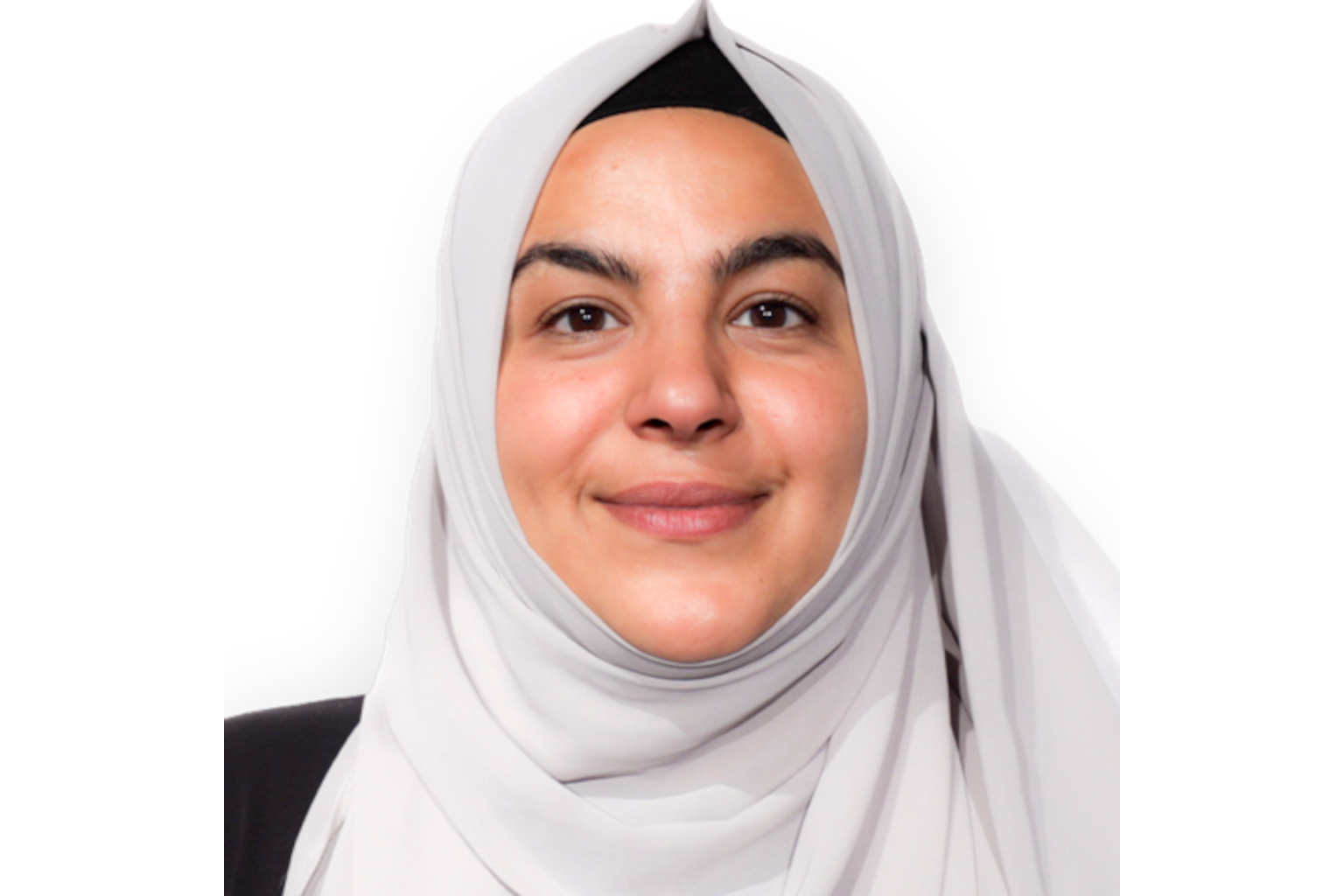
Jasmin
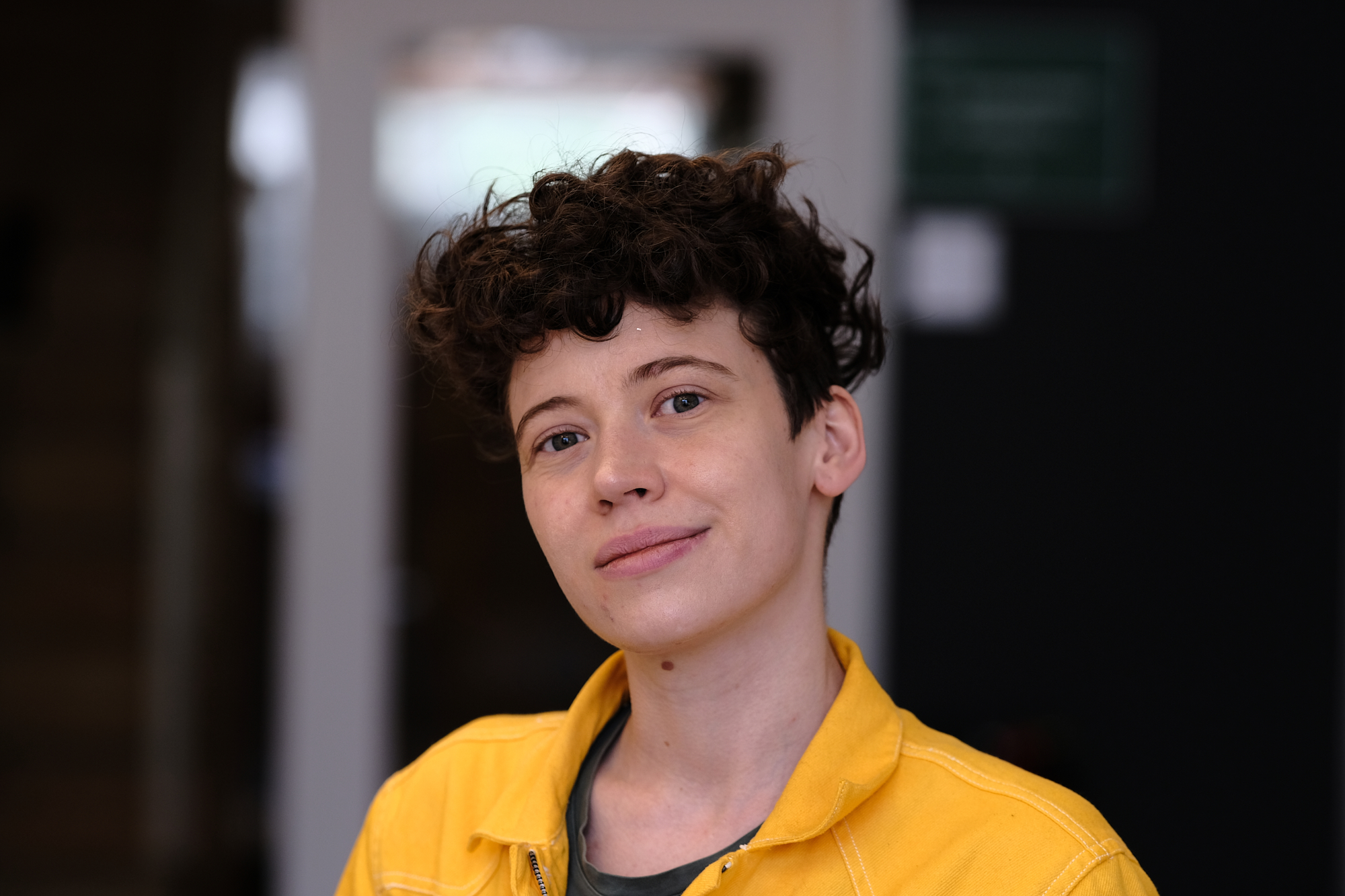
Cin
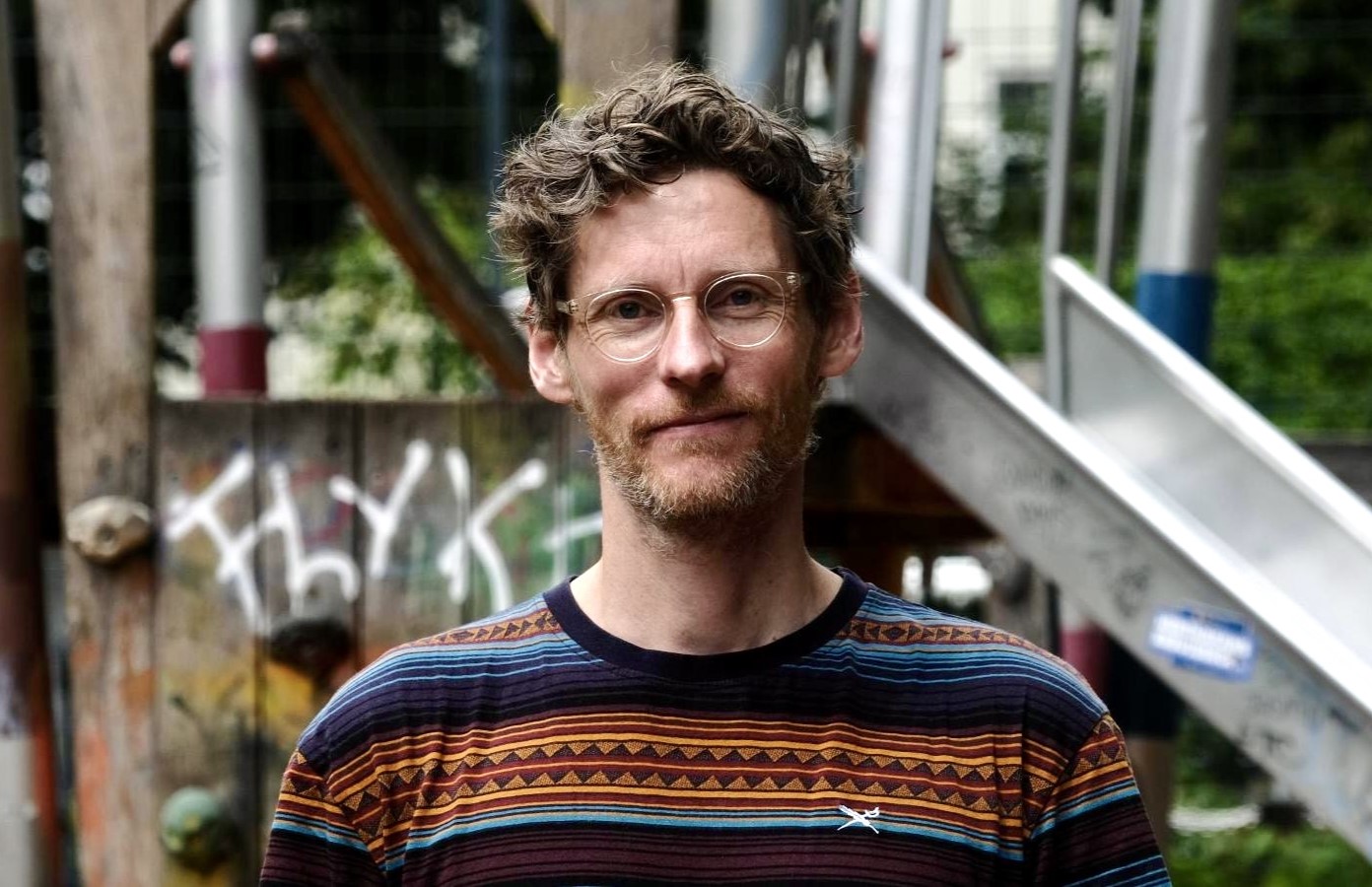
Chris
Contact
E-Mail: reshape@wikimedia.de
Tel.: 030-577116220
Mailing address: re•shape – Ein Wikimedia-Programm zur Förderung von Wissensgerechtigkeit, Wikimedia Deutschland – Gesellschaft zur Förderung Freien Wissens e. V., Tempelhofer Ufer 23-24, 10963 Berlin
Program partners
neue deutsche organisationen – das postmigrantische netzwerk e.V. (ndo)
The ndo is a nationwide network of nearly 200 charities, organizations and projects. Our members are the descendants of labor migrants and refugees, Sinti and Romani people, the people of the African diaspora, and Jewish, Muslim and other community advocates who seek to foster dialogue. Some of us refer to ourselves as People of Color (PoC) or Black Germans, ‘hyphenated Germans’ or something else altogether. What connects us: We see ourselves as a post-migrant countermovement against racism and in favor of an inclusive Germany.
We strive to counteract social division. As a network, we are committed to furthering the visibility, participation and equal opportunities of our members. We do this by engaging in debates or providing a pool of experts for media, politicians, foundations and more. We communicate our views through events, press interviews and position papers:
- We demand an inclusive understanding of belonging.
- We want social policies that work for everyone, not a politics of integration.
- People of Color and Black people must gain more adequate representation.
- We require radical reforms to the education system.
- Civic engagement must be promoted.”
Wikimedia Deutschland e. V.
Wikimedia Deutschland was founded in 2004 by volunteer Wikipedia community members and is part of a global movement (Wikimedia Movement) which advocates for Free Knowledge. As a charitable organization with over 100,000 members, we have been supporting the creation, collection and dissemination of free content since our inception by supporting volunteers on Wikimedia projects, developing free software, and advocating for equal access to knowledge and education at every level of society. We call the equitable access to knowledge-making Knowledge Equity. There are many technical and social obstacles that we must overcome on the journey to achieving our goal, as well as decision-making processes that need restructuring; to that end, Wikimedia Deutschland wants to devote more of its resources to people whose knowledge is marginalized as a result of barriers and an uneven distribution of power.
-
The Wikimedia Movement
Wikimedia Deutschland is one of several subsidiary organizations of the charitable Wikimedia Foundation, which is headquartered in the USA. We call these organizations chapters. The Wikimedia Movement is made up of a large number of people, chapters, organizations, projects and communities who advocate for Free Knowledge worldwide. Our Movement Strategy 2030 sets out the values, goals and strategic approaches of the Wikimedia movement for the next few years. There are many and various groups within the Wikimedia Movement that are taking different approaches and strategies working in and with marginalized knowledge, such as Whose Knowledge and AfroCrowd.
-
The Wikimedia Projects
When most people hear of Wikimedia for the first time, they think of Wikipedia. Some people even equate the two. In reality, Wikipedia is simply the most well-known of the many Wikimedia projects. But Wikipedia has many other sister projects, such as Wikidata, Wikimedia Commons and Wikisource – all operated by the Wikimedia Foundation. All these projects have one more thing in common: Their content is created and maintained exclusively by volunteers who also shape and manage all governance processes and other aspects of self-organization.
Jury
More information about the jury will be added shortly.
Former Advisory Board
We did not develop re•shape – A Wikimedia Program to Promote Knowledge Equity alone: To tailor the program as closely as possible to existing needs, we worked closely with an advisory board in 2022 and 2023. The advisory board was significantly involved in the selection of projects during the first program year. The following persons were members of the Board of Trustees:
- Hajdi Barz (she/her) is a founding member of the feminist Romani archive RomaniPhen e.V. She tackles racism, sexism, feminist solidarity, education and empowerment in theory and in practice. Through her engagements in academia, political education and fighting for remembrance and equality, she wants to help raise, highlight and elevate the resources and the beauty of her communities.
- Juliana Kolberg (no pronouns) is Executive Director of Projects at xart splitta e. V. and co-founder of the online platform The Living Archives. Juliana’s areas of focus include the critical interrogation and decolonial empowerment of knowledge (re)production in marginalized communities. Juliana’s expertise also extends to the areas of dis/ability, queerness and intersectionality as a whole.
- Victoria Kure-Wu (she/her) is an expert in user experience design. She builds concepts for digital interfaces between humans and computers. She shares her knowledge in various anti-racist projects and spaces. She is a volunteer Wikipedia author where her activities include being involved in the annual worldwide Asian Month in November.
- During the program’s conception, we were also supported by Zara Rahman as the fourth advisory board member until the end of 2022.


